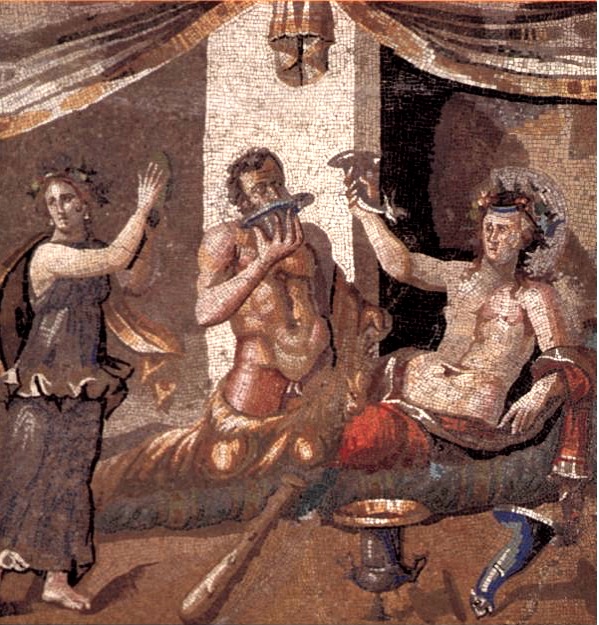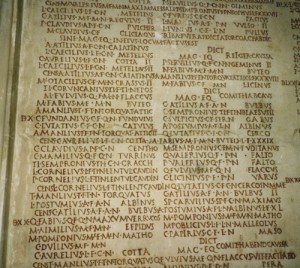Felix sanusque sit novus annus!
In the modern Western calendar, it’s the beginning of the year, a time for renewals and resolutions.I wish you every luck in your health, goals and prosperity.
It was a much more confused picture for the Romans, but then, their civilisation did last for 1229 years and evolved a fair bit over that time.
The early Roman calendar designated 1 March as the first day of the year – the awakening earth, renewed virility, the longer day, etc. Then, the calendar had ten months, beginning with March and some of the names of the months today reflects this. September to December, our ninth to twelfth months, were originally the seventh to tenth months (septem is Latin for seven; octo, eight; novem, nine; and decem, ten.)
Roman legend usually credits the second king, Numa Pompilius, with the establishment of the ‘new’ months of January and February which were first placed at the end of the year in the ’empty period’.
All change!
The January kalends (first of January) evolved as the start of the new year at some point after it became the day for the inaugurating new consuls in 153 BCE. Romans had long dated their years by these consulships, rather than sequentially, and making the kalends of January start the new year aligned this dating.
Still, private and religious celebrations around the March new year continued for some time and there is no consensus on the question of the timing for 1 January 1’s new status. Many other religions and many people more in alignment with the natural world still see the spring equinox as the start of the year. Nowadays, we assign Easter as the festival when new things begin.
Once I January became the start of the new year, it became a time for family gatherings and celebrations. A series of disasters, notably including the failed rebellion of M. Aemilius Lepidus in 78 BCE, established a superstition against allowing Rome’s market days to fall on the kalends of January and the pontiffs employed intercalation to avoid its occurrence.
If you think was was confusing…
In AD 567, the Council of Tours formally abolished 1 January as the beginning of the year. At various times and in various places throughout medieval Christian Europe, the new year was celebrated on 25 December in honour of the birth of Jesus; 1 March in the old Roman style; 25 March in honour of Lady Day and the Feast of the Annunciation; and on the movable feast of Easter. These days were also astronomically and astrologically significant since, at the time of the Julian reform, 25 March had been understood as the spring equinox and December 25 as the winter solstice.
I think that now in the 21st century, we’ve come to a workable accepted date, so I hope your new year start is a good one!
Alison Morton is the author of Roma Nova thrillers – INCEPTIO, PERFIDITAS, SUCCESSIO, AURELIA, INSURRECTIO and RETALIO. CARINA, a novella, and ROMA NOVA EXTRA, a collection of short stories, are now available. Audiobooks are available for four of the series. NEXUS, an Aurelia Mitela novella, will be out on 12 September 2019.
Download ‘Welcome to Roma Nova’, a FREE eBook, as a thank you gift when you sign up to Alison’s monthly email newsletter. You’ll also be first to know about Roma Nova news and book progress before everybody else, and take part in giveaways.
















That does sound very headache inducing.
I’m glad that after several thousand years we’ve settled on a generally agreed compromise and one that aligns with movement through space as well as time!
Another fascinating post that explains a lot so Happy New Year, Alison – well in one calendar. February 4th being another New Year……….
Thank you, Roland. It’s a bit like the plethora of railways timetables in 19th century Britain and the confusion that brought with it. In order to progress, we have had to make *some* agreement about recording the passing of time. 😉
Such an interesting and informative post. Thank you so much. Best wishes for a happy and healthy New Year!
Thank you, Pamela. And best wishes for 2019 to you.